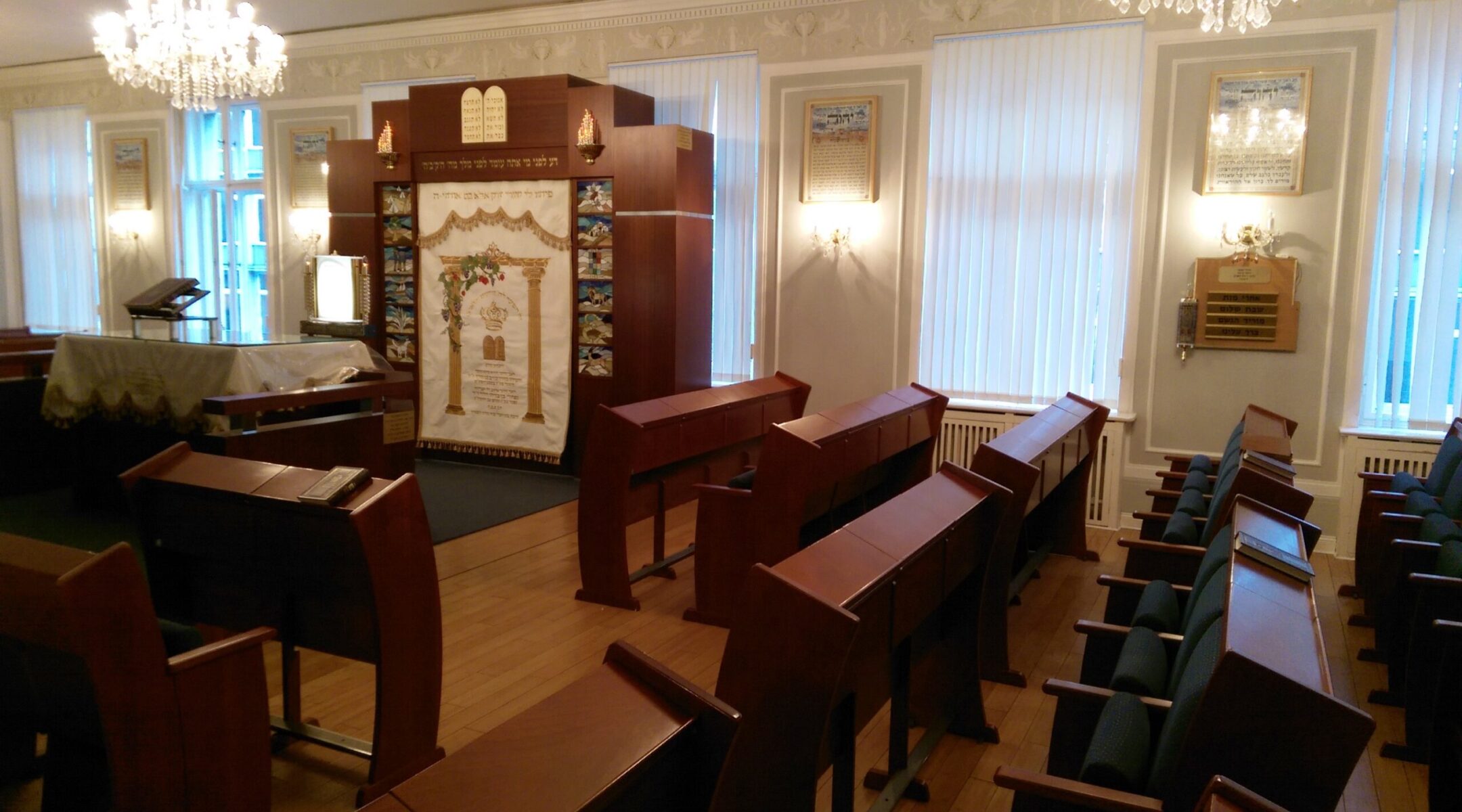BERLIN (JTA) – A Jewish religious court has convened to hear testimony against a Berlin rabbi who was fired following allegations that he preyed on young women, using religious arguments to lure them into sexual relationships.
The beit din, or religious court, of Germany’s Orthodox rabbinical association, the ORD, announced on Monday night that it had “heard several affected persons in the case of allegations of sexual assault by a rabbi.”
But the group, working together with the Chief Rabbinate of Israel and the Conference of European Rabbis, said it was not prepared to make a ruling because the rabbi had presented a letter from his doctor saying he could not testify, two hours before he was scheduled to do so. He will be given another chance, on July 13, according to the beit din’s statement.
The rabbi, Reuven Yaacobov, told the Jewish Telegraphic Agency on Tuesday that his doctors have told him to rest completely for a month because of the shock he had endured. “If we don’t end the situation, then the post-traumatic situation will follow,” he recounted via WhatsApp.
The ORD would not offer more specificity about the number of women who testified. But a source outside the ORD with knowledge of the proceedings said that at least 10 women took part, locally or remotely, in the hearings held before an international panel of rabbis convened specially to deal with this case.
The hearing came one month after the Jewish Community of Berlin fired Yaacobov and locked the doors of his synagogue, the Sephardi congregation Tiferet Israel, a day after several women testified about what they described as years of sexual and psychological abuse.
The swift actions by both the Jewish Community of Berlin and Germany’s Orthodox rabbinical association stands in contrast to past responses to allegations against Yaacobov. JTA reported last month that multiple entities had received complaints about him during the 17 years that he was employed by the official Berlin Jewish community.
Yaacobov has not commented publicly on the allegations. He told JTA that he had not been told officially why he was fired. He also said he plans to contest his termination in German court and had informed the ORD he was “ready to come to a neutral Beit Din at any time and in any place as soon as my health condition improves and the labor court has met.”
Yaacobov had been a popular spiritual leader in a subset of Berlin’s large community of Russian-speaking Jews. Born in Uzbekistan and ordained by the Midrash Sepharadi Yeshiva in Jerusalem, Yaacobov, 46 and a married father of four, also studied at the Moscow Yeshiva in Russia and the Shavei Gola Yeshiva in Jerusalem before being hired by the Jewish Community of Berlin 17 years ago, according to a biography that was removed from the organization’s website last month.
Some of Yaacobov’s former congregants have joined him in a private Berlin location for services since his firing, he told JTA. Speaking Tuesday, he also questioned why Tiferet Israel, which operates inside an apartment building owned by the Jewish Community of Berlin, remained closed, with personal belongings locked inside.
“If the community has a problem with me, then they can solve the problem with me, but why does the synagogue have to be closed because of that?” he asked, noting that the Nazis had destroyed a synagogue on that same street in 1938. “Why should the worshippers pray in another synagogue?”
A spokesperson for the Jewish Community of Berlin told JTA on Tuesday that the closure of the synagogue was essential for demonstrating to women that their concerns were being taken seriously. The spokesperson, Ilan Kiesling, said additional women had come forward with allegations against Yaacobov since the closure.
“Many of Rabbi Yaacobov’s victims did not dare to report their suffering to the community board … because they thought that Rabbi Yaacobov might be able to return to his old place of work,” Kiesling said by email Tuesday. “The closing of the synagogue on Passauer Strasse also sends a clear signal that he will never serve as rabbi there again.”
The synagogue will remain closed until both civil and religious court proceedings have been completed, he said, adding, “The ban on Rabbi Yaacobov in all institutions of the Jewish Community in Berlin remains in force.”
The ultimate ruling of a rabbinical court could deepen that estrangement. A beit din can issue pronouncements that affect a person’s role in the Jewish community locally and beyond.
Elena Eyngorn, a Berlin Jew who originally brought some of Yaacobov’s alleged victims to testify to the Jewish community’s board, told JTA on Tuesday that she had arranged for a psychologist to accompany the women at the hearings by the Jewish court this week, if they so wished. The psychologist donated her time, she said.
Eyngorn, who did not attend the hearings herself, said she understood that the ORD also had permitted each woman to bring a support person.
One of the women who testified to the beit din told JTA that she had been asked to sign a statement that she was telling the truth. With her permission, she said, the religious court recorded her testimony so the three rabbinical judges could listen to it again. She estimated that she spoke with them for about 20 minutes.
“I told them at the end of the meeting that I thought it was very important to decide something about him, because we are very responsible towards the girls who are growing up in this community,” she said in a telephone interview with JTA, speaking on condition of anonymity.
JTA has documented Jewish history in real-time for over a century. Keep our journalism strong by joining us in supporting independent, award-winning reporting.






